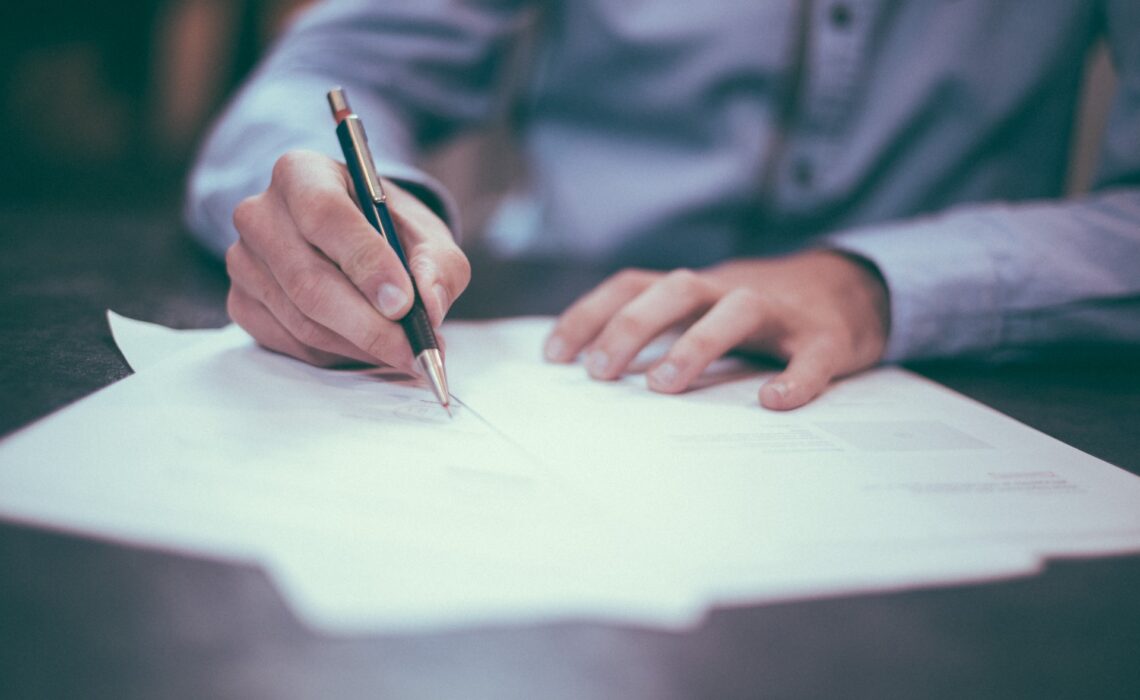
Writing a thank you letter to a speaker, or a panel of speakers, is a simple and professional way to show your appreciation. For conferences, panel discussion, and other speaker-oriented events, most attendees come for the speaker. Maybe they’re an expert in their field or they’re going to share behind-the-scene details of their latest book. No matter the reason, speakers are an important part of your event, and that should be recognized.
Before we get into the how and when of writing a thank you letter to a speaker, it’s important to establish the who. It’s really easy to decide who should get a thank you letter. Ask your self, “Did this person speak at the event?” and if the answer is, “Yes,” then they should receive a letter. This includes headline speakers, panel members, and anyone who’s talking in breakout sessions.
In some cases, you may want to give your speakers a thank you gift as well. This is less common, but it isn’t always a bad idea. But it’s important to consider their travel plans. Are they going right home? Do they have to fly? These will impact the type of gift you give, and it may be best to mail the gift ahead of them. No matter how you deliver the gift, the thank you letter should always go with it. Even if you’re handing the gift out in person, the thank you letter should be included–no mailing another thank you card a week later! But, of course, this begs the question, “How do I write a thank you letter?” Well, we’re glad you asked!
Keep It Short

Any thank you letter to a speaker should be short. There’s no official word count, but you want to find the balance between abrupt and long-winded. Usually, that’s somewhere between one to two paragraphs. You can make it a little bit longer if the speech was particularly moving or if you have a closer relationship with them. But in general, there’s no need to ramble in your thank you letter to a speaker.
Mention Their Words
It’s important to be specific in your thank you letters. This shows not only that you were listening, but it also reinforces that they met your expectations. Of course, you don’t want to spend one of your two paragraphs quoting them. (Remember–these letters are short!) But you want to be specific, and you can certainly include a sentence or phrase that resonated with you or the audience. For example, if the speaker told a personal story, you can thank them for being so open and stress how much that vulnerability is going to help those in the audience. Or maybe they shared a powerful quote that underlines your organization’s values. You can mention any of that in your thank you letter.
End on a Positive
In theory, the whole thank you letter is a positive. But your closing should wish them luck on a future endeavor or allude to working together in the future. Maybe the speaker is launching their next book soon or has just started working with a new medium, like podcasts. In that case, you can wish them luck on their upcoming projects. Perhaps the event you planned is a yearly one. Then you could extend an invitation to future conferences, letting the speaker know they’re always welcome. Instead of ending your thank you letter with yet another thank you, end it on a positive note that recognizes the speaker’s work outside of your event.
Have Someone Else Proof It

Everyone makes mistakes, and it’s really hard to proof your own writing–even on a short letter! If you’re writing multiple thank you letters, it’s easy to mix up names or spell them incorrectly. And those silly typos can be embarrassing, especially if you want to keep working with the speaker. So, before you hit send or lick the envelope, ask someone to give it a read-through and make sure everything is good to go.
Know Where to Send It
We already mentioned that, sometimes, you’ll hand a thank you gift directly to the speaker. In that case, the thank you letter should go along with it. But what if you’re not giving them a gift–where do you send the letter? It’s important that you don’t mail the letter to the speaker’s house unless you know them personally or know that that’s where they receive their professional mail. Their office or place of work is the best location to mail the thank you letter to.
If you’re unsure what that address is, you can ask an assistant, colleague, or someone you’ve been in contact with during the planning process. If you’re sending them a gift as well, you can reach out directly to them and ask for a mailing address, so they know to be on the lookout. But for a letter, it’s easier to get the address another way. Of course, you can always email the letter, but a mailed letter is usually more professional and formal.
Send It Promptly

If you’re emailing the thank you letter, send it within 1-2 business days after the event is over. But if you’re mailing it, pop it in the box ASAP so it arrives in about a week, depending on where they live. You don’t want to wait too long, because the letter may seem like an afterthought and, therefore, a little rude.
It’s never really too early to send the thank you letter. After all, if you’re giving them a gift, they’ll read it right away! But we recommend waiting at least a day before emailing. That way, it shows that you took the time to reflect on the event and craft a meaningful thank you before sending.
Conclusion
Writing a thank you letter to a speaker is an important final step once your event is over. It not only shows your appreciation even after the event, but it can also lead to future collaborations and a positive reputation. Of course, the letter should be short without being curt, and you should be specific, too. It’ll show that the speaker added value to the event and that you paid attention to that value.
Do you give thank you gifts to speakers? Or do you stick with writing a letter?

